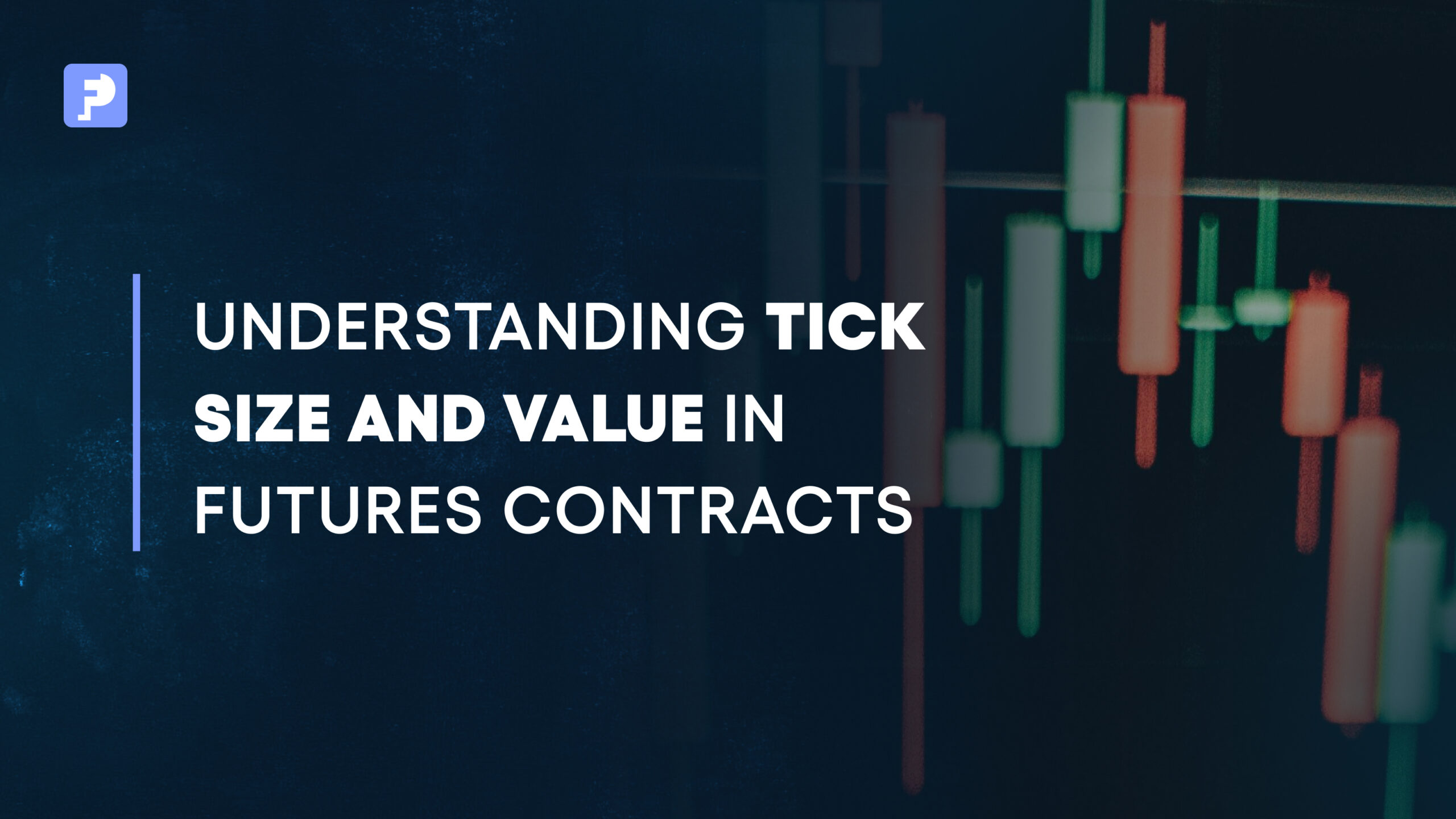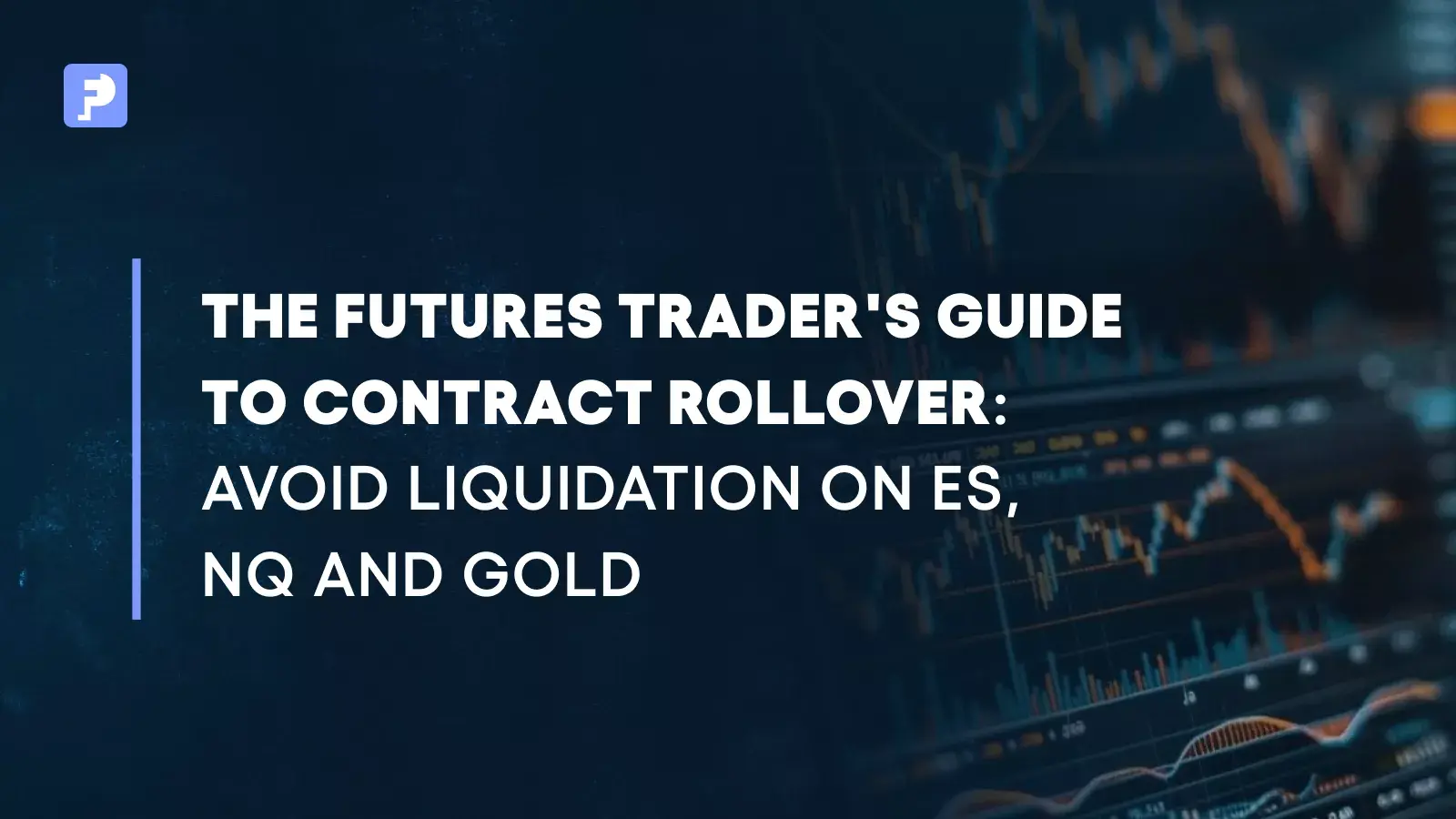
Understanding Tick Size and Value in Futures Contracts
Why Tick Size and Value Matter
Tick size and tick value control how profits and losses accumulate in a futures position. They define the smallest price movement a contract can make, the cash impact of that move, and the risk per trade.
For prop traders, where drawdown limits and risk controls are strict, knowing tick mechanics is essential for position sizing, stop placement, and daily loss management.
This guide explains tick size in futures, shows how to calculate tick value, and provides verified examples from major CME and CBOT contracts.
What is Tick Size in Futures Contracts
Tick size is the minimum price increment a futures contract can move. It is defined by the exchange for each contract.
Examples:
- E-mini S&P 500 (ES) – 0.25 index points. [CME]
- Micro E-mini S&P 500 (MES) – 0.25 index points. [CME]
- WTI Crude Oil (CL) – 0.01 dollars per barrel. [NYMEX]
- Gold (GC) – 0.10 dollars per troy ounce. [COMEX]
- Ten-Year U.S. Treasury Note (ZN) – 1/2 of 1/32 point (0.015625 in decimal). [CBOT]
- Corn (ZC) – 1/4 of one cent per bushel. [CBOT]
Each of these increments is the smallest valid movement on an order book.
What is Tick Value & How to Calculate It
Tick value is the cash value of one tick for one contract.
Formula:
Tick value = Tick size × Contract multiplier
Examples:
- ES: 0.25 × $50 = $12.50
- MES: 0.25 × $5 = $1.25
- CL: 0.01 × 1,000 = $10
- GC: 0.10 × 100 = $10
- ZN: 0.015625 × $1,000 = $15.625
- ZC: 0.0025 × 5,000 = $12.50
Examples from Major Contracts
| Contract | Code | Tick Size | Contract Unit | Tick Value |
|---|---|---|---|---|
| E-mini S&P 500 | ES | 0.25 index points | $50 per point | $12.50 |
| Micro E-mini S&P 500 | MES | 0.25 index points | $5 per point | $1.25 |
| WTI Crude Oil | CL | $0.01 per barrel | 1,000 barrels | $10 |
| Gold 100 oz | GC | $0.10 per ounce | 100 ounces | $10 |
| Ten-Year T Note | ZN | 0.015625 points | $1,000 per point | $15.625 |
| Corn | ZC | $0.0025 per bushel | 5,000 bushels | $12.50 |
Note: Treasury contracts use fractional pricing in thirty-seconds. One point equals $1,000, and the tick increment is one-half of one thirty-second.
How Tick Size Affects Risk Management and Strategy
Tick value translates price movements into cash movements. This is crucial for:
- Stop placement: An 8-tick stop in ES equals 8 × $12.50 = $100 per contract.
- Scaling: Micros allow fine control. The same 8 ticks in MES equal $10.
- Volatility filters: A fixed tick stop may be too tight or too wide depending on the day’s range.
- Drawdown control: Translate firm rules into ticks. A $500 max daily loss in ES equals five 8-tick stopouts.
For more on risk controls, see our guide on risk management in the futures prop trading market.
Common Misconceptions About Ticks and Value
- “Tick size equals volatility.” Wrong. Tick size is an exchange rule, not a volatility measure.
- “Tick value is constant across related products.” False. ES and MES have the same tick size but very different tick values.
- “All treasuries use the same tick.” Each contract has its own increment rules.
- “Corn trades in whole cents.” The tick is 1/4 cent per bushel, not 1 cent.
Practical Tips for Traders
- Plan in ticks: Define entries, stops, and targets in ticks, not just points or cash.
- Set risk per trade: Convert your max dollar risk into ticks and size positions accordingly.
- Use micros to match risk: Trade MES if ES sizing is too coarse.
- Respect valid increments: Treasury products must be quoted at valid tick levels or orders may be rejected.
- Track costs: Account for commissions and fees, which eat into tick gains.
- Stay within firm rules: Convert your daily drawdown and max loss into ticks to avoid breaches.
For more, see our post on why futures traders consider proprietary firms.
External References
- CME Group: E-mini S&P 500 contract specifications
- Investopedia: Tick size definition
- CME Group: WTI Crude Oil specifications
Conclusion
Tick size and tick value convert price moves into dollar moves. They define how fast risk builds and how to structure stops, targets, and size.
Mastering tick size and value is key to controlling risk and reading futures markets like a professional. At FunderPro Futures, we provide the structure, capital, and environment where disciplined traders can put this knowledge into practice.
Start Trading with FunderPro Futures.
All trading in FunderPro Futures takes place in a demo-style environment and in off-exchange futures.



